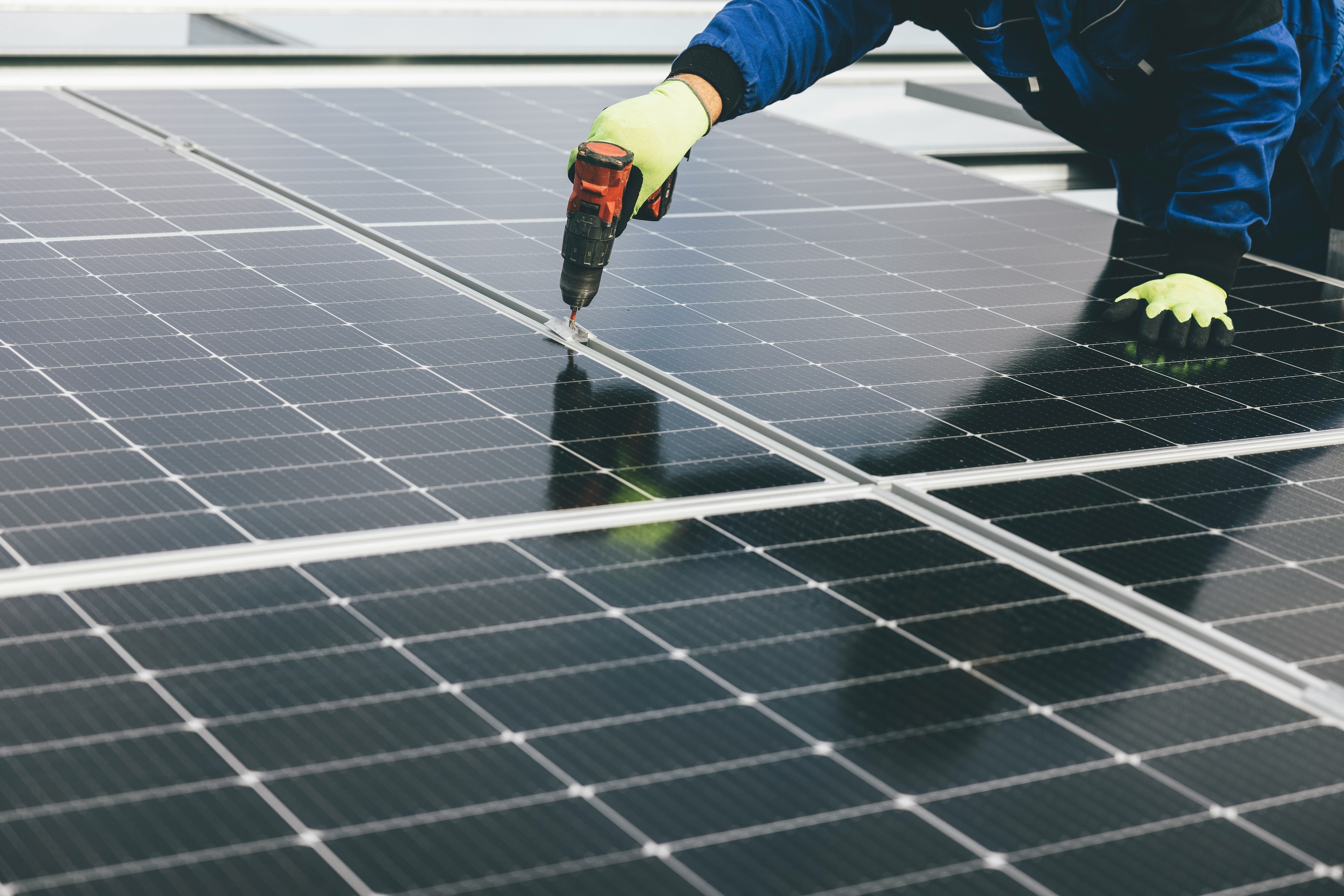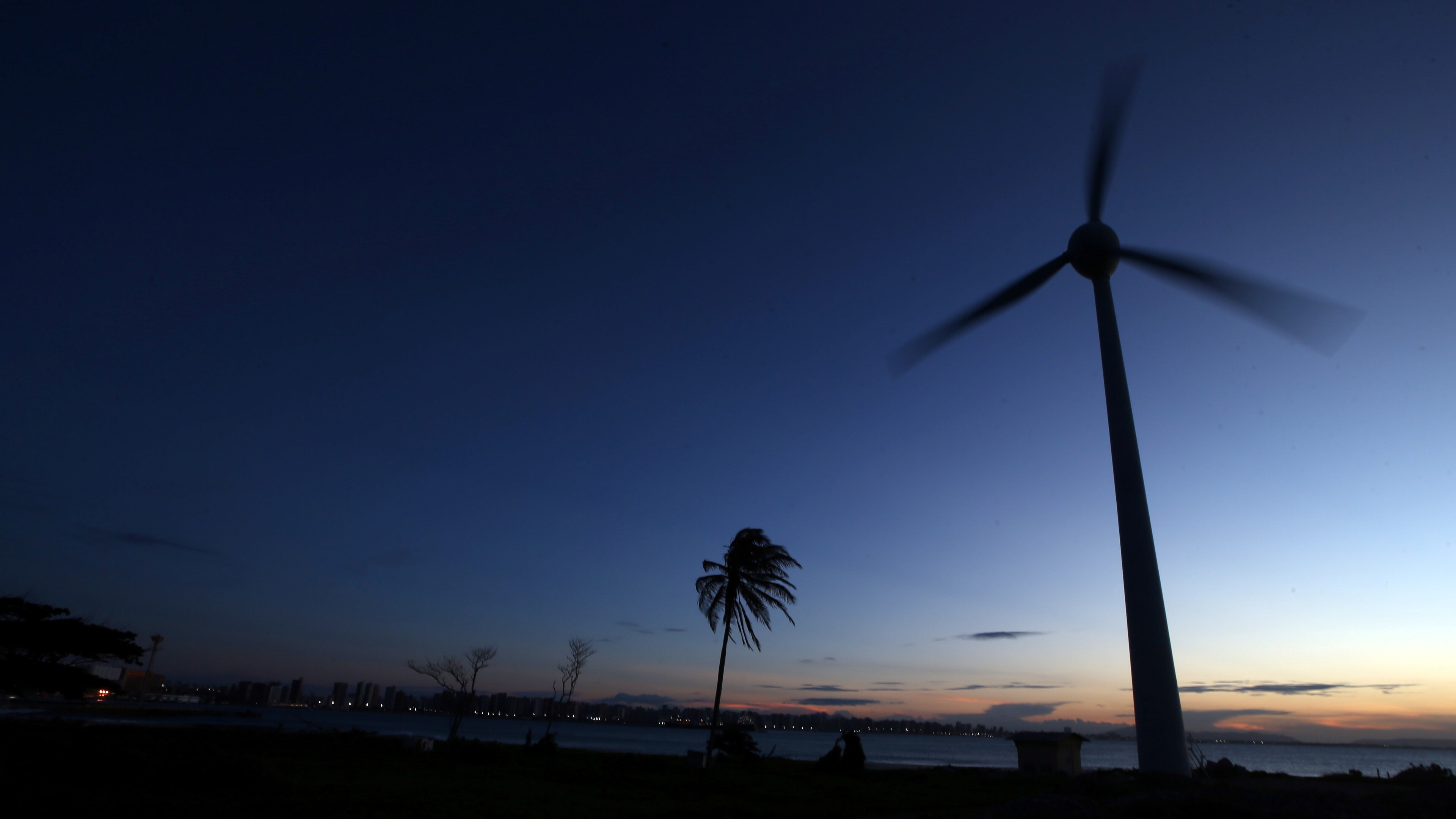COP28 and the world 'on track' to triple renewables. Top energy stories of the week

Top energy news: With the UN COP28 summit underway, the world is on track to triple renewables, says report; and more.
Image: REUTERS/Amr Alfiky
Roberto Bocca
Head, Centre for Energy and Materials; Member of the Executive Committee, World Economic Forum- This round-up brings you the latest developments in the global energy sector.
- Top energy news: With the UN COP28 summit underway, the world is on track to triple renewables, says report; The oil and gas sector could halve by 2030.
- For more on the World Economic Forum's work in the energy space, visit the Centre for Energy and Materials.
1. UN's COP28 Climate Summit underway in Dubai
Delegates from nearly 200 countries are in Dubai for the COP28 climate summit, where they are discussing the best way to combat global warming.
The United Nations Climate Change Conference began on 30 November, as the organization released a report showing that 2023 will "shatter" previous climate records.
Accept our marketing cookies to access this content.
These cookies are currently disabled in your browser.
And it's off to a positive start, with leaders having already agreed on the world's first climate damage fund, which is designed to help those countries suffering the worst impacts of climate change, such as flooding or drought.
COP28 President, Sultan Al Jaber, has also unveiled a series of initiatives called the Global Decarbonization Accelerator (GDA) that are designed to speed up the energy transition and reduce global emissions.
And 20 countries have pledged to launch the 'Declaration to Triple Nuclear Energy by 2050'.
Accept our marketing cookies to access this content.
These cookies are currently disabled in your browser.
Among other decisions on the table at COP28 will be the need to triple renewable energy, double energy efficiency and tackle the issue of phasing out, or phasing down, fossil fuels.
Over 100 countries have already backed a proposal to triple renewables, but others are yet to get on board.
The event will also deliver the results of the first global stocktake that will be used to create a comprehensive roadmap for countries to achieve their net-zero goals.
2. World on track for tripling of renewable energy: Ember
As outlined above, a major focus of the COP28 summit will be reaching international agreement on increasing renewable power threefold by 2030. And according to a new analysis by energy think tank Ember, the world is likely already on track to achieve this target.
To limit warming to 1.5°C, emissions need to be reduced by almost half by the end of this decade. As part of this effort, analysts suggest that renewable capacity needs to triple, reaching 11 terawatts by 2030.
But Ember says governments have already planned for a doubling of renewables, and tripling is "within sight". However, it adds that there is still room for some countries to step up their targets.
In recent weeks, leaders and experts around the world have called for this to be formally established as a goal at the UN climate negotiations in Dubai.
3. News in brief: More energy stories from around the world
The global oil and gas sector could be cut in half by 2030 if the goal of limiting global warming to 1.5°C is achieved, according to the International Energy Agency (IEA). Reuters said the report also stated that no new long-lead-time oil and gas projects would be necessary and some current projects would need to be closed.
Accept our marketing cookies to access this content.
These cookies are currently disabled in your browser.
More wind farms are emerging in the US, as Equinor and BP received approval for their Empire Wind offshore project, in locations south of Long Island and east of Long Branch, New Jersey, which could collectively power over 700,000 homes from 2026.
"Europe’s energy crisis is over", writes Reuters after a raft of policy and market adjustments took place in the wake of the invasion of Ukraine. New data shows comfortable energy inventories and prices closer to historical averages.
Mozambique has approved a plan to cut its dependence on fossil fuels in a bid to grow the country's economy through financing, Bloomberg reports. Details will be unveiled at COP28 and will include the expansion of the national grid to accommodate more renewable energy, as well as an increase in hydropower capacity.
Indonesia’s coal output will exceed its 2023 target of 695 million tonnes, according to a coal mining association, as the world’s biggest thermal coal exporter continues to produce more coal year on year.
Meanwhile, Cambodia has just announced it will scrap plans to build a coal-fired power project, and instead build a natural-gas-fired plant, reports Reuters. The country aims to construct new solar and wind farms and build more hydro projects to increase its clean energy capacity to 70% by 2030 – up from 52% in 2022.
One of the world’s largest solar plants has been inaugurated in the United Arab Emirates (UAE), reports France 24. The Al Dhafra solar plant is around a fifth of the size of Paris, and can power 160,000 households. The region is already looking to triple its renewable energy capacity by 2030.
How is the World Economic Forum facilitating the transition to clean energy?
The first transatlantic flight powered by a mix of waste cooking oil, animal fats and other “unorthodox fuels” landed in New York recently, which the aviation sector says is a milestone in decarbonization, reports the Financial Times.
In other aviation news, Anglo-US start-up ZeroAvia has received backing to develop a hydrogen-electric engine for zero-emission flights.
The World Economic Forum has launched a new report, Better Community Engagement for a Just Energy Transition: A C-Suite Guide, which explores how C-suite professionals can adopt a "people-positive" approach to clean power development that not only achieves an accelerated transition but also delivers broader social, economic and environmental value.
4. More on energy from Agenda
Deploying more clean energy will mean using more land, and community engagement will be essential to progress. A new whitepaper from the World Economic Forum emphasizes how the positive-people approach can build value for communities from new energy projects.
While climate action in the 2020s will focus on existing technology, in the 2030s we will activate innovations not yet deployed at scale. Here are three ways the public sector can spur investment in next-gen climate solutions.
This article explores how scaling up collaboration and engagement can help tackle scope-3 upstream emissions.
To learn more about the work of the Centre for Energy and Materials, contact Ella Yutong Lin: ellayutong.lin@weforum.org
Accept our marketing cookies to access this content.
These cookies are currently disabled in your browser.
More on Energy TransitionSee all
Tony Pan
August 27, 2025
Thomas Brostrøm and Sandeep Kashyap
August 26, 2025
Charles Bourgault and Sarah Moin
August 19, 2025
Jürgen Karl Zattler and Adrian Severin Schmieg
August 18, 2025
Piyush Verma
August 18, 2025








